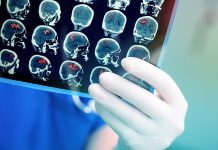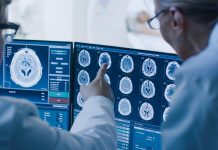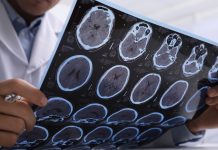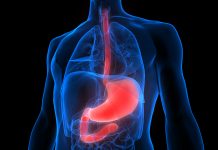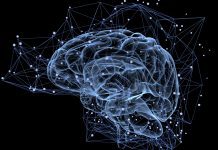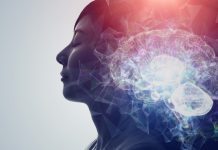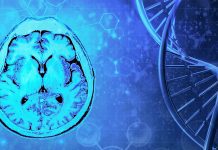Neurology Related News
Wearable brain scanner provides the clearest picture yet of developing brains
New research has given the clearest picture of young children’s developing brains, using a wearable brain scanner.
University of Nottingham researchers have developed a novel...
A new rapid treatment for IIH headaches is in development
A new injectable peptide-based drug, normally used to treat type-2 diabetes, could treat IIH headaches.
A trial conducted by the University of Birmingham has found...
A new blood test to improve epilepsy diagnosis
Researchers have found that levels of immune proteins in the blood are higher before and after an epileptic seizure, a discovery which may facilitate...
How psychostimulants can damage dopamine production
Researchers from MedUni Vienna have identified the mechanisms behind the unwanted effects of psychostimulants, which are used to treat neuropsychiatric disorders.
Psychostimulants interact with dopamine...
Scientists discover a rare neurological disease involving cellular recycling
Scientists from the National Human Genome Research Institute have found a rare neurological disease that provides insights into the cell’s recycling system.
Scientists from NIH’s...
Experiencing multiple concussions linked to poor brain function
Experiencing three or more concussions is linked with worsened brain function in later life, according to the University of Oxford.
Teams from the University of...
The effects of gestational diabetes mellitus on children’s neurodevelopment
Gestational diabetes mellitus can have negative effects on the neurodevelopment of two-year-old children, according to the University of Turku.
Despite the negative effects of gestational...
Children with persistent speech disorder are likely to struggle socially
Children with persistent speech disorder often experience more difficulty than their peers in making friends and maintaining relationships, according to new research.
Researchers from the...
Women tend to suffer more from chronic cluster headache
Women are more affected by chronic cluster headache than previously thought, according to new research from Karolinska Institutet.
Chronic cluster headache, also known as ‘suicide...
Researchers find a link between oral bacteria and brain abscesses
New research has shown that bacteria known to cause oral infections can lead to life-threatening brain abscesses.
A study from researchers at the University of...
Treating cognitive decline after cholestatic liver disease
Patients with cholestatic liver disease may develop neurological symptoms including fatigue and cognitive decline, for which there is currently no cure.
Cholestatic liver diseases such...
Researchers identify three new subtypes of brain cancer
Three new subtypes of brain cancer have been discovered by researchers from RCSI University of Medicine and Health Sciences in Dublin.
The new subtypes of...
A new biomarker for detecting glymphatic system insufficiency
Malfunctions in the glymphatic system can be detected via wasteosomes according to new research from the University of Barcelona.
According to the study, wasteosomes —...
Microglial activation can slow Alzheimer’s progression
Microglia immune cells in the brain can slow down Alzheimer’s progression, according to research from Lund University.
Microglia cells can be found in the central...
Symptoms of delirium during a stroke could point to worse outcomes
Stroke patients who experience symptoms of delirium during a stroke could be more vulnerable to long-term cognitive and psychiatric difficulties.
Around 9,000 people are admitted...
Making brain tumour surgery safer with quantum sensors
Researchers from Johannes Gutenberg University Mainz (JGU) and the Helmholtz Institute Mainz (HIM) have been developing new technology to make brain tumour surgery safer.
Removing...
How the effects of dopamine change after aversive events
A new study from the Netherlands Institute for Neuroscience has examined the effects of dopamine after aversive and unpleasant events.
The effects of dopamine on...
Light physical activity can reduce brain haemorrhage symptoms
Four hours of light physical activity can reduce the symptoms of intracerebral brain haemorrhage, according to research from the University of Gothenburg.
Intracerebral brain...
Clinical guidelines for Schaaf-yang syndrome have been released
The first clinical guidelines on the ultra-rare disease, Schaaf-yang syndrome, have been released, aiming to improve knowledge and treatment of the condition.
The guidelines are...
Neurostimulation shows promise as a dysphagia treatment
A new study by the University of Manchester has found three types of neurostimulation that could help people with dysphagia.
Dysphagia is the medical term...


